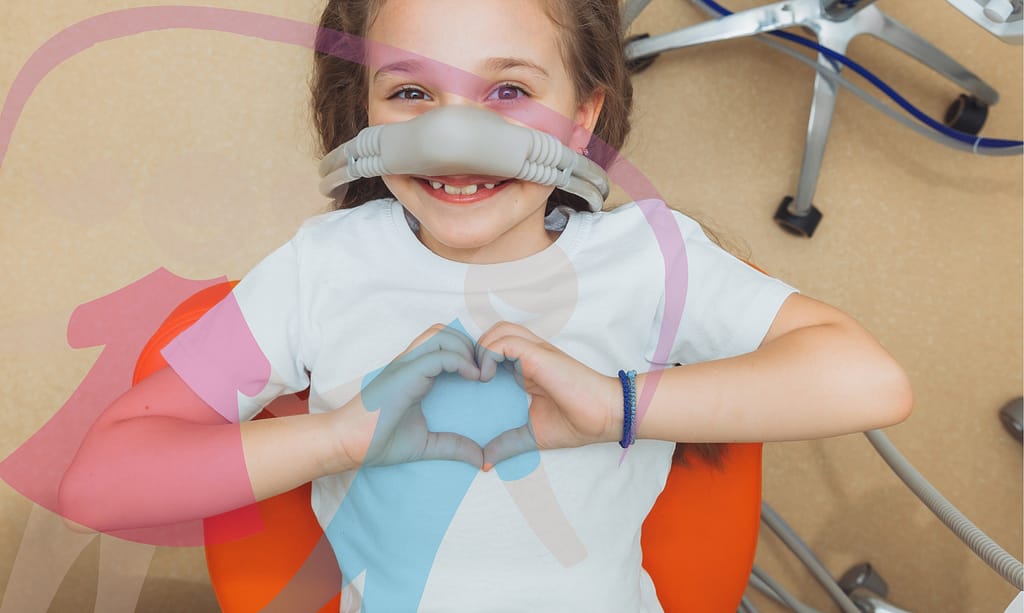The Significance of Sedation Dentistry in Special Needs Pediatric Dentistry

Understanding Special Needs Pediatric Dentistry
We understand that not every child enjoys visiting the dentist. And for children with special needs, dental visits can be even more challenging. Within special needs pediatric dentistry, one valuable resource stands out: sedation dentistry. In this article, we will explore the significance of sedation dentistry, identifying the unique challenges and considerations related to ensuring oral health and providing the highest level of patient comfort.
The American Academy of Pediatric Dentistry defines special health care needs (SHCN) as conditions that require medical management, health care intervention, or specialized services or programs. These children have chronic physical, behavioral, developmental, or emotional conditions that necessitate additional support or time during their visits. This encompasses a wide spectrum, including children with cleft lip or palate, Down syndrome, and various other conditions that limit daily self-maintenance activities.
The treatment challenges associated with diverse conditions require specialized knowledge, heightened awareness, and adaptive measures in pediatric dentistry.
The Role of Sedation Dentistry
For children with sensory sensitivities, dental anxiety, developmental disorders, or physical limitations, dental care can be a challenging experience. This is where sedation dentistry can be a valuable ally in addressing these specific needs.
A study published in the International Journal of Environmental Research and Public Health highlights the challenge of managing patients with special health care needs (SHCN) and very young children due to anxiety and limited comprehension of dental treatment processes. In such cases, an approach that includes sedation dentistry may be indicated.
Sedation dentistry offers several benefits:
- It ensures a calm and cooperative demeanor during dental treatment.
- Outpatient sedation offers a more cost-effective than in-hospital options.
- More available appointments are possible with sedation dentistry.
- Chair time is shorter when utilizing sedation dentistry.
- Reduced environmental stress allows for a more comfortable experience.
Additionally, while dental treatment under in-hospital general anesthesia is more involved, it is the best option in certain cases. Overall, sedation dentistry is a vital piece of comprehensive oral care for children who may struggle with receiving treatment through traditional approaches.
Types of Sedation Techniques
Sedation dentistry is a reassuring resource for those with dental anxiety or those who need lengthy treatments as well. Here’s a closer look at two common sedation options.
Inhalation Sedation
Commonly called “laughing gas,” inhalation sedation is a method where the patient inhales a combination of nitrous oxide and oxygen through a nosepiece. This delivers a calming effect within minutes. The pediatric dentist meticulously controls the sedation dosage throughout treatment, adjusting it as needed. Afterward, the dental team administers pure oxygen to clear nitrous oxide from the child’s system. Because it dissipates rapidly, adults who receive nitrous oxide, for example, can even drive themselves home post-treatment.
General Anesthesia
General anesthesia may be necessary in some cases, particularly when treating young children, patients with special needs, or individuals with severe dental anxiety. This type of unconscious sedation renders the patient completely unaware during treatment. Dentists offering general anesthesia possess advanced training, with anesthesiologists often administering it in a hospital or surgery center setting.
Tips for Helping Special Needs Children Prepare for a Trip to the Dentist
For special needs children, dental care can be much more manageable with these strategies. Start early—around their first birthday—so that visiting the pediatric dentist becomes familiar. Consistency matters, so sticking with the same dentist near Kearney allows your child to build trust with the same dental care team and office environment.
Bringing comforting toys or items from home can provide additional security and relaxation during their visit. Establishing routines and creating a supportive dental environment will help your special needs child feel more at ease during their dental appointments.
Here are some additional tips to help ensure your child has the best possible experience at the dentist:
- Play dentist at home to familiarize your child with the idea of receiving dental care.
- Visit the dentist’s office beforehand and take photos. Review those photos at home periodically to help your child become more familiar with the setting.
- Come up with a social story to help your child learn more about what to expect.
- Take breaks as appropriate during the appointment.
Pediatric Dental Specialists of Kearney specializes in care for children with SHCN.
Sedation dentistry bridges the gap to accessible and effective dental care for children with special needs. It empowers them to receive vital treatment they need without sacrificing their comfort or well-being.
As parents and caregivers, the best step you can take is to seek out specialized dental services that prioritize your child’s unique needs. Pediatric Dental Specialists of Kearney provides the compassionate, expert care your child deserves.
Don’t hesitate—book an appointment today and embark on the journey to a brighter, healthier smile for your child.